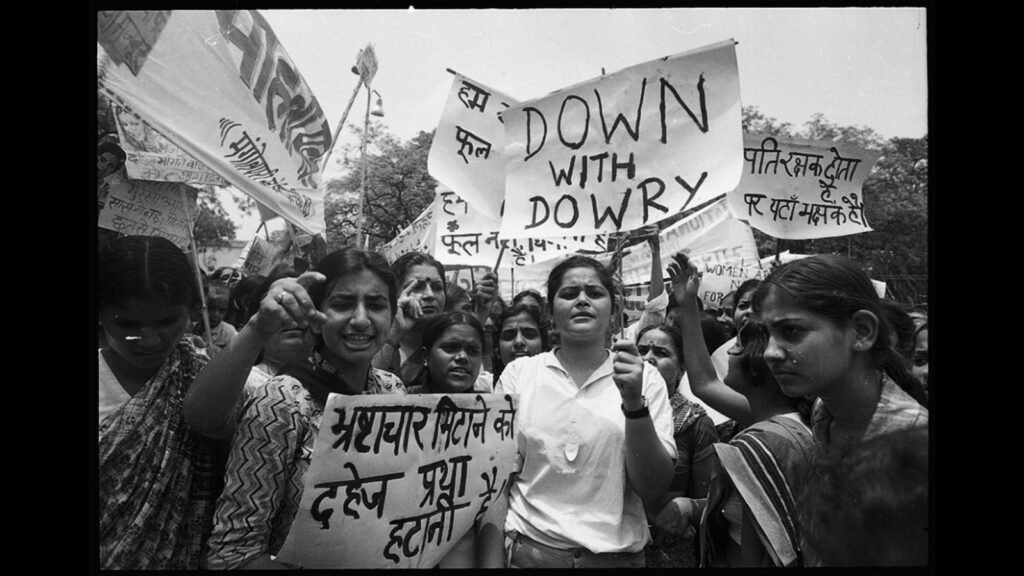
Courts can’t be a solution to everything, the solicitor General of India recently said. So is the case with laws. The Alleged Dowry Killing of Nikki Bhati in Greater Noida Flies in the face of the laws prohibiting down and domestic violence. It forces us to ask why these laws have failed to be a deterrent.

Both these laws are criticized when misused to settle scords in a Marital Discord or Demed Ineffered When A Life is Actually Lost. These Are, of courses, no solution for fixing a bad marriage because marriage should be based on mutual affection and not social Considerations. The problem is that such laws, particularly downbition and the Prohibition of Child Marriage, Have Had Little Actual Effect. To Illustrate, The Dowry Prohibition Law Penalies Both Giving and Taking of Dowry. It would be different to cite an example where the party giving a downrity has been prosecuted. While the alleged act of the accused vipin bhati is undoubtedly culpable, there are many aspects of the case that Need Our Attention as well.
Consider the statement of Nikki’s Father, who said that the family knew of the torture and excesses House, but after the intervention of their “samaaj“(Caste Community), Sent Her Back to Her Matrimonial Home. The Father even questioned the utility of taking the matter to the authorities/courts when their”samaaj was with them ”. This is exactly why these laws suffer from gaps with ground realities.
Consider Her Uncle’s Statement: “My Brother Sold His Property, Gave a Scorpio Car and 10 Lakhs of Jewelery. It was the biggest marriage in our village ”. While takers don’t it Criminal and Shameful to Take Dowry, Givers Don’T Realise Giving Dowry is encouraging and culpably contributing to that Punishes both acts.
Laws Alone Can’t Change Much here, and it would be delustional to expect the change to come from social. The first step towards changing the situation have to be taken by the women themselves. It’s for them to Seize their own custody. No matter how much we resist this understanding, marriage in India has been reduced to a transactional event for custody of a woman, shifting from the paraband/in-laws.
Dowry is the considence for which the two familyies exchange custody. These laws have been tested for many years now: whila there has been considerable punitive success, there has been litle preventant success. The Fundamental Problem is that marriage has been entered as the central axis of people’s lives, particularly girls. Parents are in a hurry to marry off their Daughters. Otherwise, What Stops Them from Refusing Dowry Demands? Sometimes, parents of the women themselves say things like “We will spend this much and give this and that”. Many women, too, take Pride in Lavish Marriages and Extravagant Gifts Given to their in-laws by their parents. Of course, down, called “gift” – often termed the woman’s share in parental wealth – Right until a crime like domestic violence or down
Women must make their education and career the central axis of their life, and their familyies need to support them in this. They need to aim for self-dependent raather than marriage. They also need to exercise their rights to find their place in the parental family. While Women in Dissolved Marriages Seek Alimony and Maintenance from their Husbands and their Assets Emphatically, MOST Women Relinquish their share in parental propesty Oor Coparceny Property, Thongs Their birthright after the 2005 amendment in Hindu success act. Dowry is often demed the alternative for this share by the parental family. Until women exercise their rights with their parental family in their own interest and enabled and empower themselves to be finally indexily indexing, the problem may not be solved.
Seema Sindhu Practices Law at the Supreme Court of India. The views expressed are personal
All access.
One subscription.
Get 360 ° Coverage – From Daily Headlines
To 100 Year Archives.
E-paper
Full archives
Full access to
Ht app & website
Games
Alredy subscribed? Login









